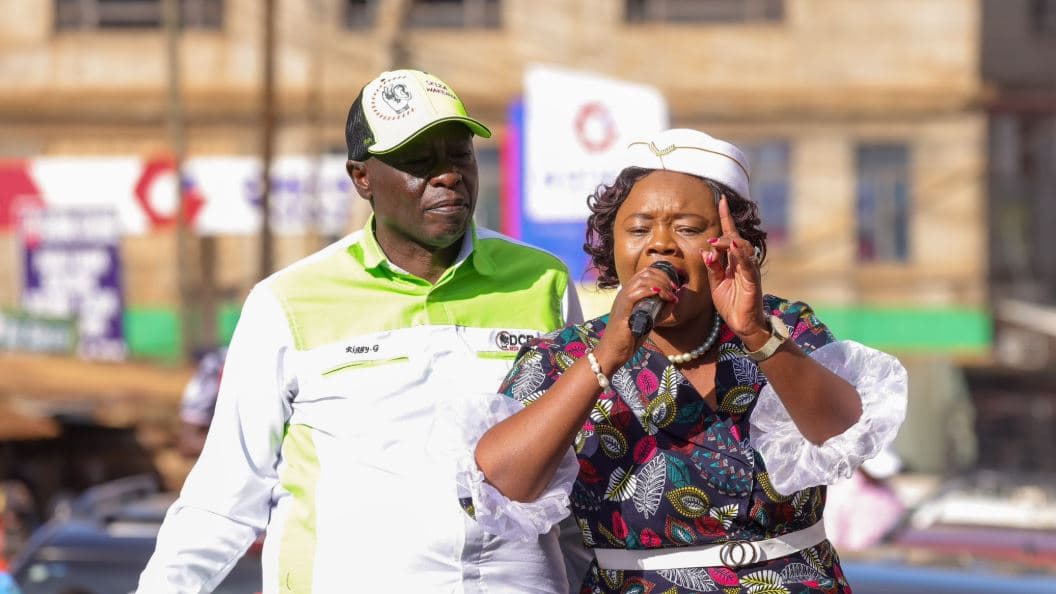We're loading the full news article for you. This includes the article content, images, author information, and related articles.
Former Deputy President Rigathi Gachagua’s new party aims to reshape Kenya's political landscape by challenging the ruling coalition and securing a dominant parliamentary presence in the next general election.

Former Deputy President Rigathi Gachagua’s newly-formed political outfit, the Democracy for the Citizens Party (DCP), has declared an ambitious strategy to secure more than 100 parliamentary seats and spearhead an opposition victory in the 2027 General Election. This move signals a significant realignment in Kenyan politics, positioning Gachagua as a formidable challenger to President William Ruto following his departure from the ruling coalition.
The party, officially unveiled on Thursday, May 15, 2025, at its headquarters in Lavington, Nairobi, aims to consolidate its influence, particularly in the Mount Kenya region, and build a national coalition. Gachagua, who was impeached in October 2024, stated that the party's formation followed six months of extensive consultations with citizens across the country. The party's slogan is “Skiza Wakenya” (Listen to Kenyans), and its emblem is a hand cupped around an ear, symbolizing its commitment to grassroots engagement.
A cornerstone of the DCP's strategy is the aggressive mobilization of the youth demographic. On Wednesday, November 5, 2025, the party’s Youth League, led by National Youth Leader Wanjiku Thiga, launched a detailed plan to galvanize young voters. The initiative aims to train and support over 300 young aspirants for various elective posts, establish party youth offices in all 47 counties, and mobilize a minimum of three million youth votes for the 2027 polls.
In a significant policy proposal, the Youth League urged the party leadership to waive nomination fees for young aspirants. Instead, candidates would be required to recruit new party members to qualify for the ticket: 1,000 members for Member of County Assembly (MCA) aspirants, 2,500 for Members of Parliament, and 5,000 for gubernatorial, senatorial, and Woman Representative candidates. “Leadership should never be for sale,” Thiga stated during the Youth League Forum in Nairobi, emphasizing a focus on building the party through loyalty and active participation.
The DCP's emergence marks a formal political divorce between Gachagua and President Ruto’s United Democratic Alliance (UDA). Gachagua has framed his new party as a vehicle to correct what he terms a betrayal of the Mount Kenya region and to offer a new direction for the country. He has explicitly declared his intention to run for the presidency in 2027, despite ongoing legal questions surrounding his eligibility post-impeachment. Gachagua maintains that he is qualified to run as long as he has not exhausted all legal avenues of appeal against his removal from office.
The party has attracted several notable political figures into its interim leadership. Former Kakamega Senator Cleophas Malala was named the interim Deputy Party Leader, while former Agriculture Cabinet Secretary Mithika Linturi will serve as the National Organising Secretary. Other key appointments include David Mingati as National Chairperson and former Laikipia Woman Representative Cate Waruguru as the National Women's Leader.
Analysts suggest Gachagua's strategy is twofold: to consolidate his political base in the vote-rich Mount Kenya region and to use that influence as a bargaining chip for a potential super-alliance with other opposition figures. His ambition to build a dominant party mirrors the long-standing influence of other major political players in Kenya, aiming to secure significant legislative power to shape the national agenda, regardless of the presidential outcome. As the 2027 election cycle draws closer, the DCP's ability to execute its grassroots and youth-focused strategy will be critical in determining its impact on Kenya’s political landscape.
Keep the conversation in one place—threads here stay linked to the story and in the forums.
Sign in to start a discussion
Start a conversation about this story and keep it linked here.
Other hot threads
E-sports and Gaming Community in Kenya
Active 9 months ago
The Role of Technology in Modern Agriculture (AgriTech)
Active 9 months ago
Popular Recreational Activities Across Counties
Active 9 months ago
Investing in Youth Sports Development Programs
Active 9 months ago
Key figures and persons of interest featured in this article